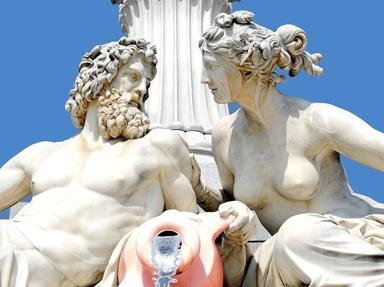Quiz Answer Key and Fun Facts
1. Henry Rowley Bishop named an opera composed in 1826 after a character from "The Book of One Thousand and One Nights". Who is this tailor's son, who also inspired the Walt Disney Corporation for a series of animated movies?
2. In 1816, Louis Spohr composed an opera based upon a drama by Johann Wolfgang von Goethe. The opera was named after a famous Doctor. What is his name?
3. "Der Fliegende Holländer" ("The Flying Dutchman") is one of the early famous operas by Richard Wagner. What is the profession of the title character?
4. In 1876, Richard Wagner completed his masterpiece "Der Ring des Nibelungen" ("The Nibelungen Ring"). This is a set of four separate operas, which each take up a full night. What is the title of the last episode, also a synonym for the perishing of the Earth?
5. Engelbert Humperdinck composed an opera named after one of the fairy tales by the brothers Grimm. What is the title of this opera?
6. In 1852, Jacques Halévy composed the opera "Le Juif Errant" ("The Wandering Jew"). What is the name of the leading character?
7. In 1691, Henry Purcell composed an opera about a mythical Britannic King. Who was this person?
8. According to an opera by Carl Maria von Weber, who was the mythical King of Elves? He appears in Shakespeare's "Midsummer Night's Dream", and, of course, in Felix Mendelssohn-Bartholdy's opera based on the Shakespearian play.
9. Francesco Cavalli named an opera after a mythical Queen of Carthage. Who was this queen, whose tragic fate is related in Virgil's "Aeneid"?
10. There are a few Russian operas based upon folkloristic tales. In the opera composed by Michail Glinka in 1842, the mythical hero Ruslan meets a beautiful young woman. What is her name?
Source: Author
JanIQ
This quiz was reviewed by FunTrivia editor
agony before going online.
Any errors found in FunTrivia content are routinely corrected through our feedback system.

